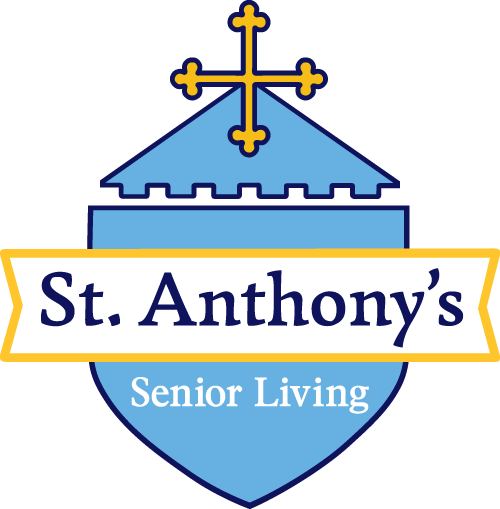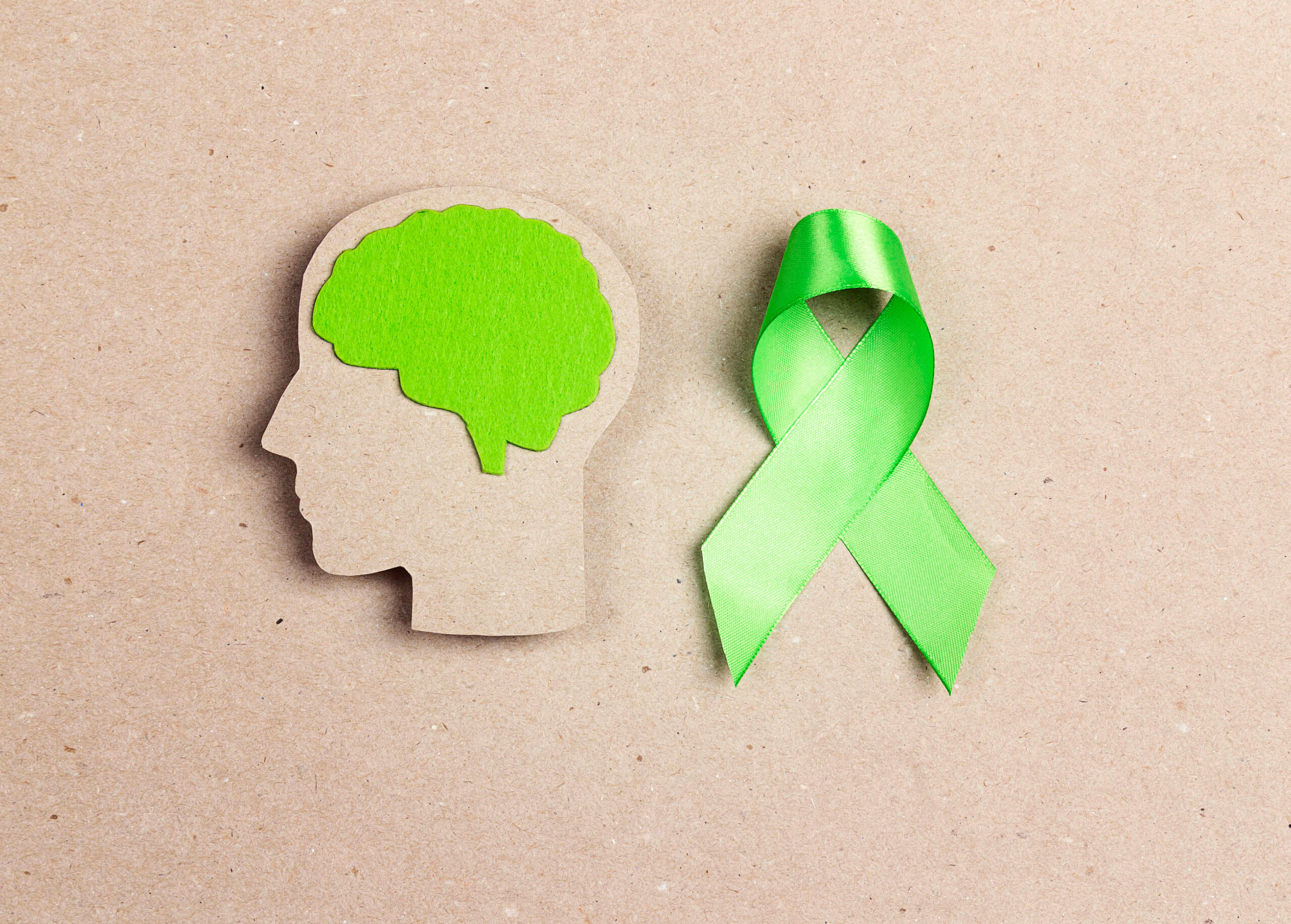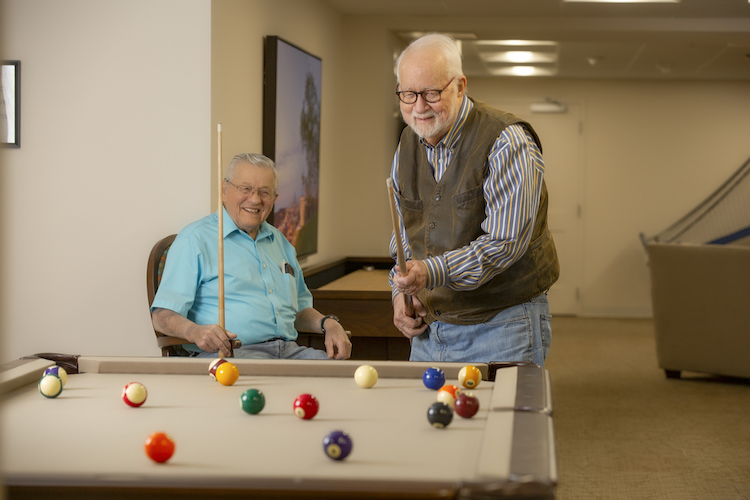Did you know May is Mental Health Awareness Month? Whether you answered “Yes” or “No” to that question, we believe it’s worth spending some time diving into this national observance for a few reasons. We’ll dive a little deeper into the history behind Mental Health Awareness Month below, but this observance was certified in 1949—an initiative launched by Mental Health America (MHA). It makes sense that MHA wanted to advocate for mental health awareness just a few years following the end of World War II—to ensure veterans and families of those who served were supported during some pivotal years of getting back to normal. Similarly, we think Mental Health Awareness Month in 2021 is extremely vital for a global community just having gone through a worldwide pandemic. The pandemic has had mental health ramifications for virtually every age group—from preschool programs to assisted living centers like St. Anthony’s, we know the next few months are crucial in advocating for proper steps toward mental health.
When we think about mental health awareness, it’s easy to think about others in our lives. We think about others who have struggled with mental health issues—be it friends or family. But part of Mental Health Awareness Month is realizing that we need to take care of our own mental health first and foremost. Perhaps a better way to state this is with a common practice of boarding an airplane. You know those oxygen masks? And how we’re told, should the need arise, to put our own mask on first before helping others or children with theirs? Similarly, Mental Health Awareness month is an opportunity to assess your own, personal mental health.
As mentioned above, we’re going to outline a little more about Mental Health Awareness Month, and then will transition into how St. Anthony’s is committed to mental health alongside each of our assisted living residents. Getting older is already an interesting transition, but tack on a pandemic that has changed our world and you get an increased need for addressing the importance of quality mental health measures.
A Brief History on Mental Health Awareness
Since 1949, Mental Health America has advocated for proper mental health through events, promotion, and toolkit materials to provide assistance for individuals struggling with a number of mental health side-effects. What are some common and prominent mental health setbacks? According to the Anxiety and Depression Association of America (ADAA) there are a few alarming statistics on what many Americans are going through.
- • “General Anxiety Disorder (GAD) affects 6.8 million adults, or 3.1% of the U.S. population, yet only 43.2% are receiving treatment.”
- • “Panic Disorder (PD) PD affects 6 million adults, or 2.7% of the U.S. population.”
- • “Nearly 21% of adults in the United States will go on to develop Major Depressive Disorder at some point in their lives.”
- • “More than 8 million Americans between the age of 18 and older have Post-Traumatic Stress Disorder (PTSD).”
Just to name a few. Sadly, those are all statistics that don’t factor in the lasting effects of the COVID-19 pandemic. However, the ADAA does have a plethora of resources to navigate managing depression/stress during a pandemic.
Now, for a little more on the “toolkit” that MHA has provided in the past. Every March, in order to prepare for Mental Health Awareness Month, MHA releases a toolkit of materials that coincides with a yearly theme that the organization focuses on. For instance, 2020’s March theme was “#Tools2Thrive” which proved vital for the months ahead—the #Tools2Thrive Toolkit included practical (and printable!) PDF documents for addressing necessary mental health checkpoints: Owning Your Feelings, Finding the Positive, Eliminating Toxic Influence, Creating Healthy Routines, Supporting Others, and Connecting with Others.
An example of a non-COVID toolkit comes from 2018 when the MHA set a theme for the importance of fitness and mental health: #4Mind4Body. As an assisted living center, we pride ourselves on high quality fitness options for our residents—which leads to Mental Health Awareness month at St. Anthony’s, and how we don’t see this crucial initiative as a once a year platform. We take mental health seriously every day, and here’s why.
Assisted Living and Mentally Thriving
None of our staff or leadership takes any component of assisted living lightly. We know that a comprehensive suite of living circumstances and benefits at St. Anthony’s are what makes us such a quality option for anyone you know who might be entering this phase of life. To contribute to an overall, mentally healthy environment, consider a few of our following assisted living amenities:
- • Spacious apartments with oversized bathrooms
- • Three chef-prepared meals per day
- • Highly-trained healthcare staff 24/7
- • Inviting neighborhood dining room, featuring 350-gallon fish tank
- • Personalized care program including assistance with daily activities such as bathing, dining, and mobility
- • Specialized diets
We could go down that list and outline how each contributes to high-quality mental health, but to keep this blog post brief, let’s just say we have the happy residents to prove it. If you would like to hear more about any of those amenities or more at our assisted living center, reach out to us today! We’d love to hear from you.
Next Steps and the Continued Push for Elderly Mental Health
St. Anthony’s is all about “next steps” with any of our residents. One of the main contributors to ailing mental health can be fixating on the past—perhaps more than the past itself, humans often accept things as “the way things are, and the way things will always be.” But that kind of thinking contributes to a fixed mindset.
What’s the opposite of a fixed mindset? We’re glad you asked! The opposite of a fixed mindset is a growth mindset. Growth is at the center of our St. Anthony’s mission and vision, and it’s why everyone at our assisted living center is a work in progress. Nobody is perfect, but together we can strive for excellence in everything we do.
THAT is what we believe contributes to high-quality mental health—a constant pursuit of serving one another, but not before taking care of yourself first. As we round out Mental Health Awareness month, know that we care about not just residents at St. Anthony’s, but anyone who is thinking about spending their next season of life with us. Whether he or she has struggled mentally in the past, we are committed to welcoming any new resident with open arms.
Assisted living is one thing, but assisted thriving is a bit different—that is what we’re after. We have the staff, programs, and vision to prove it. In a way, you could say that every morning we put on our oxygen mask so that we can help those we love most.




